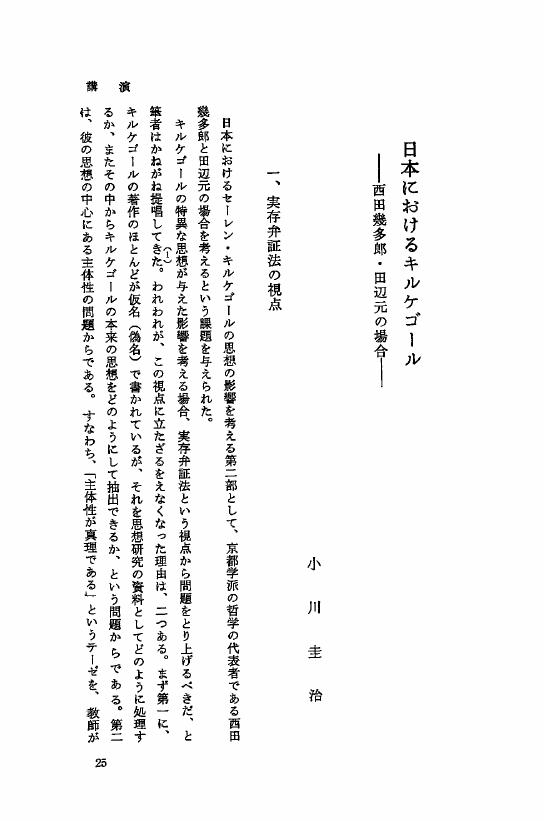2 0 0 0 OA 公会主義 : その理念と運命 二
- 著者
- 小川 圭治
- 出版者
- 東京女子大学
- 雑誌
- 東京女子大學附屬比較文化研究所紀要 (ISSN:05638186)
- 巻号頁・発行日
- vol.39, pp.21-46, 1978-01
2 0 0 0 OA 公会主義 : その理念と運命(一)
- 著者
- 小川 圭治
- 出版者
- 東京女子大学
- 雑誌
- 東京女子大學附屬比較文化研究所紀要 (ISSN:05638186)
- 巻号頁・発行日
- vol.38, pp.32-48, 1977-01
Hong De Yong (洪大容1731〜1783) was an excellent encyclopedist and scientist who played an active part in the scientific history of Korea. According to his concept, the universe is infinite and boundless with countless stars filling it up. This is almost equal to J. Bruno's concept of the universe. This article aims to introduce an outline of his theory of the infinite universe which is developed in his work called "Yi Shan Wen Da" (〓山問答), and to investigate its origin. My conclusions are as follows. 1. His theory is based on The Hsiian Yeh Teaching (宣夜説), which was one of the ancient Chinese cosmologies. 2. His theory destroyed the traditional theories such as the cosmic dual forces (陰陽説) and the five natural elements (五行説) by difining the relation between the sun and the earth.
1 0 0 0 OA 現代における神の問題
- 著者
- 小川 圭治
- 出版者
- 日本哲学会
- 雑誌
- 哲学 (ISSN:03873358)
- 巻号頁・発行日
- vol.1973, no.23, pp.64-72, 1973-05-01 (Released:2009-07-23)
1 0 0 0 OA 日本におけるキルケゴール
- 著者
- 小川 圭治
- 出版者
- The Japan Society of Christian Studies
- 雑誌
- 日本の神学 (ISSN:02854848)
- 巻号頁・発行日
- vol.1988, no.27, pp.25-48, 1988-09-15 (Released:2009-10-23)
- 参考文献数
- 25
1 0 0 0 OA 近代主義の成立とその問題点 : キルケゴール研究への序章
- 著者
- 小川 圭治
- 出版者
- 東京女子大学
- 雑誌
- 東京女子大學論集 (ISSN:04934350)
- 巻号頁・発行日
- vol.11, no.1, pp.1-26, 1960-10-30
In this essay I have tried to explain the of the so-called "Kierkegaard Renaissance" in the couse of modern, European history of thought as an introduction to the study of S. A. Kierkegaard. The modern European civilization was made by the Renaissance and Reformation. But the thinkers of Enlightenment did not recognize the importance of the role of the Reformation, but attributed the initiative of modernization to the Renaissance. E. Troeltsch criti cized this one-sidednessi of thought in Enlightenment. Therefore the typical modern western spirit cae be found in the German Idealism which accomplished a consequent synthesis of two opposite elements. I. Kant made this synthesis through the moralistic immanentization of God, and G.W.F. Hegel through the dialectical absolutization of Man. Both are homocentric and depend on autonomous reason. This haughtiness of human reason resulted the abstractness of thought in German Idealism. In the nineteenth century a great deep change occurred in the spiritual climate of Europe. O.Spenglar characterized it as a decline and fall of western, autonomous culture (der Untergang des Abendlandes). In this new historical situation German Idealism could no longer play a leading role as the philosophy of western Europe. Then a new leading philosophy for the present age was required. The thought of S. A. Kierkegaard had not been recognized by his contemporaries who were under the overwhelming influence of German Idealism. But in this new difficult situation after the First World War the new meaning of his thought on human existence was found, and under the influence the Thelogy of Crisis and Existentialist Philosophy was born. This is the so-called Kierkegaard Renaissance.




